World War II historical fiction has become a wildly popular genre. With famous classics like Catch-22, Atonement, and From Here to Eternity, there are many well-known and captivating novels set in the trying times of the Second World War. Beyond the Pulitzer Prize winners and books turned Hollywood blockbusters, there are many less well known novels that offer equally gripping and thought-provoking glimpses into the life-altering events of World War II.
Massive in scope, World War II was made up of countless stories of bravery and strength, ingenuity and resourcefulness, and horror and tragedy. World War II touched an unfathomable amount of lives. The breadth of powerful and unique stories from World War II, extends far deeper than the ground covered by popular novels. These books take you into unexplored corners, lift up the tales of dogged yet unrecognized soldiers and nurses, and center the reader amidst chaos and action.
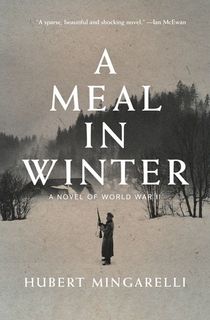
A Meal in Winter
In Hubert Mingarellis’ A Meal in Winter, three German soldiers set out to track and return a Jewish man for execution. After searching the woods and capturing the man, the weary soldiers seek relief from the dark and frigid Polish winter in a nearby cabin, where a passing Polish man joins the tense group. Vocal in his anti-Semitism and hate, the Polish man intensifies the fractures within the already precarious group. Each soldier grapples with the orders they have been given and their own consciences in the moving and intimate novel. Exploring the Holocaust on a personal level, A Meal in Winter “will make many think of the stories of Ernest Hemingway ... a reminder of the power a short, perfect work of fiction can wield” (The Wall Street Journal).
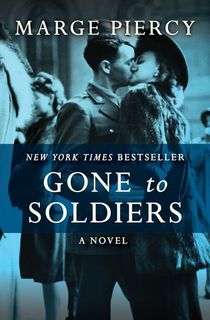
Gone to Soldiers
All-encompassing and deeply stirring, Marge Piercy’s Gone to Soldiers tells the stories of 10 distinct narrators during World War II. With stories that range widely—from soldiers on the battlefields and skies above, to families in wait at home, to those enduring in concentration camps—Gone to Soldiers reveals the resilience of everyday people. Forced to face the trials of their time, Piercy artfully tells the stories of ordinary individuals, who rose up and pushed on, despite their faults and fears.
With the Los Angeles Times, calling Piercy’s work “the most thorough and most captivating, most engrossing novel ever written about World War II,” it is a special work among World War II fiction.
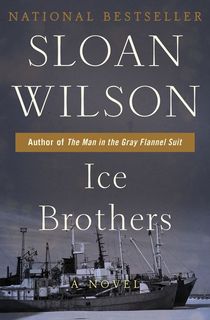
Ice Brothers
Based on the experiences of Sloan Wilson while a Coast Guard officer on the Greenland patrol, Ice Brothers tells the adventurous story of a young man forced to step into responsibility, without preparation or warning.
Paul Schuman, a college senior and eager enlister, boards a fishing trawler set to patrol Greenland for secret German weather stations. While his captain, Lt. Cdr. “Mad” Mowry, is renowned within the Coast Guard, his alcoholism, temper, and deteriorating mental state, leave Paul and his equally inexperienced crewmates to fend for themselves. And when Mowry unravels completely, Paul must step into the role of captain amidst the mounting threats of German gunboats and increasingly hostile Arctic conditions. Dramatic and compelling, Ice Brothers tells of an often overlooked part of the war.

After the Fall
Late in 1941, the Philippines offers a picturesque escape for American personnel. Lt. Riley Gilhouley keeps contraband flowing to his troops and pursues Maj. Rosemary Dodd, who looks after her nurses with order and care. Former priest John Macklin seeks absolution, while drawn to Glory Bee O’Halloran, a burlesque dancer who performs to cheering troops. Separated from their pasts and embracing the carefree atmosphere, each finds their life on the island turned upside down when the Japanese attack and the base descends to chaos. Bingham’s After the Fall touchingly weaves together stories of love and bravery, as the U.S. joins the war in the Pacific.

The Saboteur
Taking the British Operation Gunnerside as its inspiration, The Saboteur centers on Norwegian engineer Kurt Nordstrum, who sets out to England to share secret information he has acquired about the German’s atomic program in Norway. Once there, he joins up with a unit of Norwegian commandos who embark on a daring mission to raid the factory housing the German nuclear program. The stakes are impossibly high, as Nordstrum’s mission grows more complicated, challenging, and heart-wrenching. Written by New York Times bestselling author Andrew Gross, The Saboteur is the thriller all WWII buffs need to read.
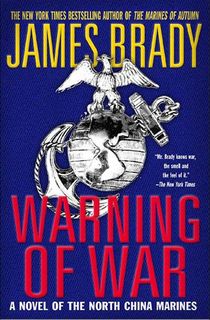
Warning of War
In Warning of War, James Brady, a Marine veteran himself, tells the story of a detachment of 200 Marines imperiled in North China as the U.S. prepares for war in the Pacific. Against the backdrop of the political uncertainty in late 1941, as a U.S. entrance seemed imminent but was not yet a reality, War Secretary Henry Stimson and Secretary of the Navy Frank Knox send a message to troops in the Pacific warning of impending conflict. Taking notice, 800 Marines from the Fourth Regiment board ships for Manila. However, in outposts across Northern China, 200 more find themselves left to their own devices. Determined to escape China and join up with the rest of the Corp, Warning of War tells the story of these Marines’ long odds and gritty courage.

Daughters of the Night Sky
Nicknamed by the Germans the “Night Witches”, the 588th Night Bomber Regiment was one of the few female air force units in the Soviet army during World War II.
Inspired by the 588th Night Bomber Regiment, Runyan’s Daughter of the Night Skies follows Katya Ivanova, who grew up dreaming of flying away from her bleak life in the mountains. Upon graduating from military academy, Katya is called to serve in the 588th Night Bomber Regiment. Undaunted by the challenge and unswayed by her husband’s pleas to avoid the war, Katya flies straight into combat. But her missions test her in ways she could not have imagined, and as the war draws to an end, Katya is confronted with an agonizing decision.
Thrilling and heartfelt, Daughters of the Night Skies speaks to the often unsung role of women in combat.

The House of Dreams
In 2000, Sophie Cass, a journalist pursuing her big break, investigates the secret of a painter now residing in the Hamptons. Her questions into his past led her to the House of Dreams and 1940 Marseilles. There, Varian Fry has gathered a group of prominent artists and thinkers, in the hopes of helping them escape France. Brought together by shared danger, those in the House of Dreams find love, strength, and camaraderie in one another. But as Sophie continues to dig into the story of the House of Dreams, she begins to wonder if she has gone too far in her search for the truth.
Inspired by journalist Varian Fry’s heroic work to aid famed artists and intellectuals like Marc Chagall, Hannah Arendt, and Max Ernst, Kate Lord Brown’s The House of Dreams builds on true events.
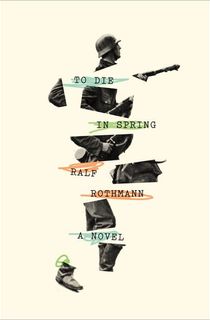
To Die in Spring
Written in 2015 and translated to English in 2017, this novel is unique among popular World War II historical fiction—as it is written from a German perspective.
The haunting and heartbreaking coming of age story follows two 17-year-old boys, Walter and Friedrich, as they are conscripted to serve in the German Army during the last months of World War II. Forced to leave behind the farms they have grown up on, the two must endure the most dire period of the war. However, what they see drives them to the brink, and when Friedrich deserts, Walter must do the unimaginable.
Still unable to speak about his experiences as he nears his death decades later, Walter’s experiences during World War II are pieced together by his son. Kirkus Reviews calls To Die In Spring: “searing, haunting, incandescent: Rothmann’s new novel is a vital addition to the trove of wartime fiction.”

The Secret of Raven Point
The Secret of Raven Point takes place in Italy in 1943 as World War II tears through the country.
After reading a mysterious letter from her brother and learning that he has been reported missing in action, 17-year-old Juliet Dufresne sets out in search of him. Heading to the front lines as an army medic, Juliet tries to help the many wounded and suffering in the field hospital. There, Juliet learns of the mayhem and the unspeakable tragedies of war. Taking special care for Christopher Barnaby, a deserter she believes has information about her brother, Juliet races to learn what he knows before the authorities punish him for his desertion. But the traumas of war have left Christopher catatonic, and Juliet’s time to uncover what he knows is running out.
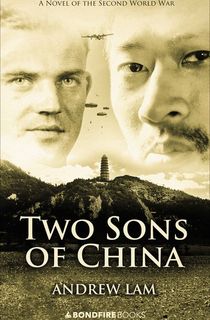
Two Sons of China
Set in China in 1944, Two Sons of China speaks to the depth of the bonds formed in battle. Despite their disparate backgrounds and clashing world views, American Lt. David Parker and Communist guerilla Lin Yuen, find themselves fighting a common enemy—the Japanese. Sneaking behind enemy lines on a risky mission, the two grapple with their conflicting beliefs, as they witness horrors, endure grueling battles, and survive together. But as the war draws to an end and China’s civil war begins, the two find their beliefs and their bonds tested again.
A powerful story of friendship and betrayal, Two Sons of China shows readers a new side of the Pacific Theater.

Grass for My Pillow
First published in 1966 in Japanese, Grass for My Pillow speaks to the consequences of resisting war. Following the story of Shokichi Hamada, Grass for My Pillow tells of the lengths Shokichi went to dodge the draft and avoid the war—and the unexpected and troubling repercussions his choice has on his life 20 years later, when his deeply hidden secret is forced out into the open. Showing the flaws of both the protagonist and the country he criticizes, Kirkus Reviews hails Maruya’s novel as “a masterly realistic novel.”

The Kitchen God’s Wife
When her best friend and lifelong confidant Helen decides the time has come for Winnie to tell the truth, Winnie knows she must sit down with her daughter. Winnie begins to recount her life story to her daughter—the hardships, the trials, and the impossible choices she had to make. Going back to her birth and the 1920s on an island off the coast of Shanghai, Winnie tells of her travels across China and its devastation during World War II, and how she finally came to the United States.
This post is sponsored by Open Road Media. Thank you for supporting our partners, who make it possible for The Archive to continue publishing the history stories you love.
Featured photo: Wikimedia Commons




